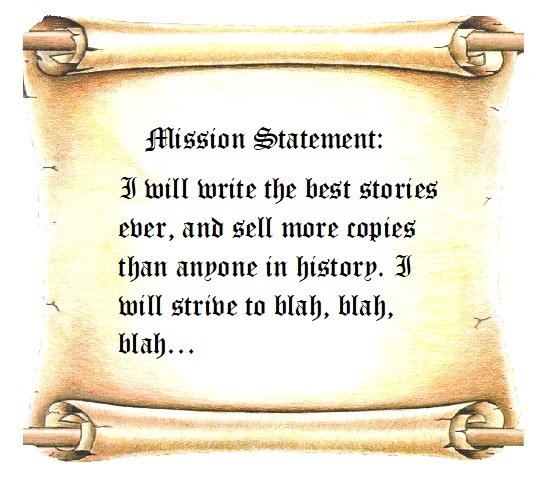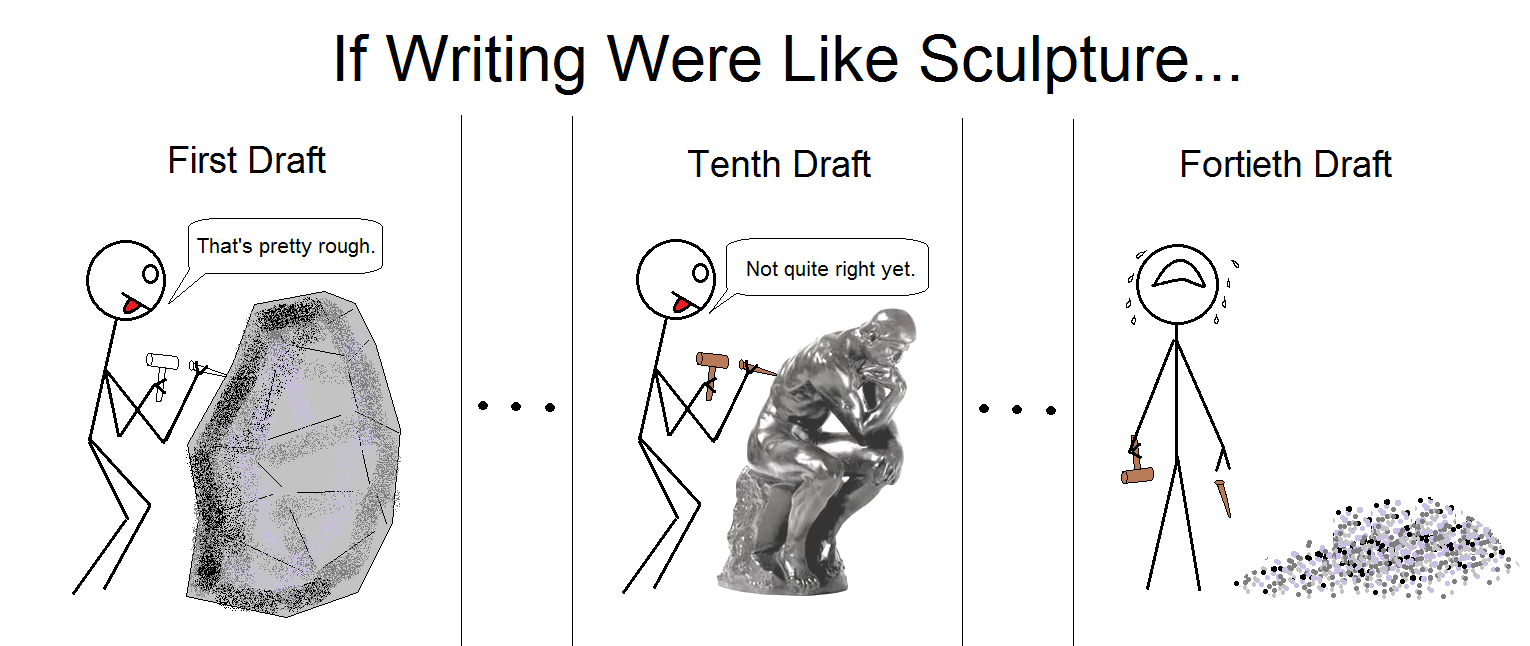Many organizations have mission statements. Some people have their own personal mission statement. A few writers have an ‘author mission statement.’ I don’t think you need one, and I’ll explain why.

According to most definitions of mission statements, their purpose is to serve as a goal or agenda, to communicate the organization’s (or person’s) purpose to all stakeholders, and to create a sense of unity and identity.
To those purposes, I would add this: a mission statement can maintain focus and motivation.
Several authors have their own mission statement. Robert J. Sawyer’s is “to combine the intimately human with the grandly cosmic.” Dr. Randy Ingermanson’s is “to write excellent novels and non-fiction; to market my work like a mad genius; and to teach other writers to do the same.” Leanne Sowul’s is rather long, but begins this way: “My mission is to write fiction that tells stories from multiple perspectives about a significant moment in time.” Joanne Phillips’ is also long, and starts as follows: “I write stories to entertain and offer a temporary escape into another life.”
If all these authors have mission statements, and many have explained their reasons for having one, why am I suggesting you don’t need one? Who am I to go against the accumulated genius of more successful writers?
I’m not disparaging anyone’s mission statement. If other writers receive some benefit from theirs, more power to them. If you’re determined to come up with one for yourself, I’m not here to talk you out of it.
Also, I’m not against mission statements in general. They’re great for organizations. Even personal mission statements, of the sort advocated by Stephen R. Covey in The Seven Habits of Highly Effective People, have significant value.
I’m just suggesting, before you invest the time to craft an author mission statement, you might ask yourself why you’re doing it. Do you believe you’ll write better after you have one? Do you occasionally forget why you’re writing and need a reminder? Do you really need the prodding of words on a brass plaque above your desk?
It’s not like you’re leading a team where members will stray off on tangents or act counter to the goal. For your fiction writing endeavors, it’s just you.
Think of other significant roles you have in life, possibly spouse, parent, employee, etc. Do you have written mission statements for any of those individual roles? If not, what makes your writer role different?
Most likely you started your hobby because an inner voice kept screaming “Write!” during your waking hours, and it’s never let up. Do you need more prompting than that?
Remember, time spent honing your mission statement is time not spent writing fiction.
Obviously, you’re free to do your own thing, in your own way. No matter your reason, you might want a written author mission statement, and might glean some benefit from having one.
Please leave a comment if you disagree with me. I’m especially interested in why you crafted your author mission statement, and how you think it has helped you.
For now, writing without any mission statement whatsoever, I’m—
Poseidon’s Scribe

 We could seek advice from accomplished authors. Unfortunately, the various quotes I’ve compiled run the gamut from the ‘don’t edit at all’ extreme to ‘seven revisions might not be enough.’
We could seek advice from accomplished authors. Unfortunately, the various quotes I’ve compiled run the gamut from the ‘don’t edit at all’ extreme to ‘seven revisions might not be enough.’